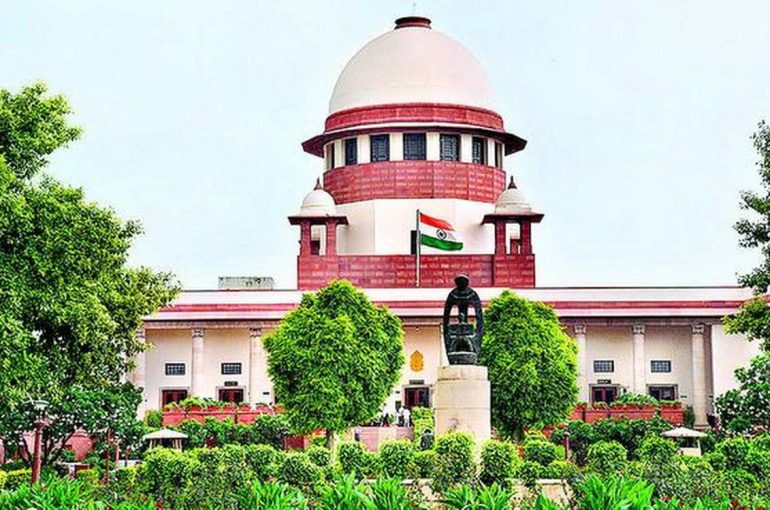WHEN FLAMES TEST FAITH: UPHOLDING FAIRNESS IN FIRE INSURANCE CLAIMS

WHEN FLAMES TEST FAITH: UPHOLDING FAIRNESS IN FIRE INSURANCE CLAIMS
INTRODUCTION
The Supreme Court’s Judgment in Orion Conmerx Pvt. Ltd. v. National Insurance Co. Ltd., 2025 INSC 1271 (Civil Appeal Nos. 3806 & 3855 of 2020), delivered on 30 October 2025 by a Bench comprising Justices Dipankar Datta and Manmohan, reinforces the principles of good faith and fair dealing in Insurance Law. The Court examined whether a fire that destroyed the insured’s premises was “accidental” under the terms of a fire insurance policy and whether the insurer’s repudiation of the claim was justified.
BRIEF FACTS
M/s Orion Conmerx Pvt. Ltd. (the “Insured”) suffered extensive losses in a fire on 25 September 2010, which damaged its building, plant and machinery, furniture, electrical fittings and stock. The Company had valid fire insurance policies issued by National Insurance Co. Ltd. (“Insurance Company”).
After assessing the damage, the Preliminary Surveyor indicated that the fire was likely caused by a short circuit. However, the final Surveyor’s Report concluded that the fire was not accidental, citing the existence of multiple ignition points and minimal damage near electrical fittings. Based on this Report, the Insurer repudiated the claim.
The National Consumer Disputes Redressal Commission (NCDRC) partly allowed the Insured’s Complaint, awarding ₹61,39,539 with 9% interest. Both parties appealed — the Insurer challenged the finding of accidental fire, while the insured sought full compensation.
ISSUES OF LAW
1) Whether the fire incident was “accidental” within the meaning of the fire insurance policy.
2) Whether the Insurer was justified in repudiating the claim based on the Surveyor’s Report.
3) Whether the Insured had substantiated its loss, including claims for stock, furniture and fittings.
4) How should ambiguous terms like “FFF” in the policy be interpreted?
ANALYSIS OF THE JUDGMENT
1. Determination of Accidental Fire
The Court clarified that the essence of Fire Insurance is indemnification for loss caused by fire, provided it is not deliberately set by the Insured. Once actual fire damage is proven and there is no evidence of fraud or intentional burning, the cause of the fire becomes immaterial.
Relying on New India Assurance Co. Ltd. v. Mudit Roadways (2024) 3 SCC 193, the Bench reiterated that “the precise cause of fire, whether a short-circuit or any other factor, remains immaterial if the insured is not the instigator.” The final Surveyor’s Report failure to provide reasons for calling the fire “non-accidental” led the Court to hold that the fire was indeed accidental and within the scope of coverage.
2. Arbitrary Repudiation by the Insurer
The Court found the Insurer’s reliance on the final Surveyor’s Report arbitrary and perverse, as it lacked reasoning and ignored critical evidence such as photographs, police reports, and expert valuations. The Insurer’s decision, it held, violated the duty of uberrima fides (utmost good faith) that governs insurance contracts.
3. Coverage of ‘FFF’ (Furniture, Fixtures, and Fittings)
The Insurer had denied coverage for “FFF,” arguing that it was excluded from the Policy. The Court rejected this, holding that the Policy explicitly used the term “FFF,” which can only mean “Furniture, Fixtures, and Fittings.” Following Canara Bank v. United India Insurance Co. Ltd. (2020) 3 SCC 455, it reiterated that coverage provisions must be interpreted broadly and ambiguities resolved in favour of the Insured.
4. Proof of Loss and Documentary Evidence
The Court found that the Insured had substantiated its losses with extensive contemporaneous records—cost sheets, stock registers, purchase orders, and bank audit reports. The Surveyor’s arbitrary application of a flat ₹450 valuation per item was criticized as unscientific.
The Court also noted that the Insured had reduced its claimed loss from ₹2.65 crore to ₹. 2.45 crore to exclude profit elements, indicating bona fides. Furthermore, it held that the Surveyor failed to evaluate over 5,800 pages of documents submitted, demonstrating procedural irregularity.
5. Interest and Compensation
While affirming the NCDRC’s findings, the Supreme Court modified the interest component—granting simple interest at 6% per annum from three months after the incident until payment.
CONCLUSION
The Judgment stands as a reaffirmation of equity, good faith and reasonableness in insurance jurisprudence. The Court emphasized that insurers cannot arbitrarily deny claims on speculative grounds or flawed survey reports. Where actual fire and genuine loss are proved, the insured must be indemnified.
By holding that “FFF” includes furniture, fixtures and fittings and that the cause of fire is immaterial absent fraud, the Court has reinforced a pro-consumer and principle-driven interpretation of insurance contracts.
In essence, the Judgement rekindles trust in contractual fairness — ensuring that when flames destroy, faith in justice does not.
SARTHAK KALRA
Senior Legal Associate
The Indian Lawyer & Allied Services
SUSHILA RAM VARMA, Advocate
Chief Consultant
The Indian Lawyer & Allied Services
Editor’s Comments
The above Judgement shows once again the reluctance of Insurance Companies to pay up when an insurance policy is invoked. Generally, Insurance Companies always find some technical flaw to repudiate insurance claims. However, in this case, despite the Insured satisfying the Insurance Company on all aspects, it was refused it’s claim on FFF only because the Insurance Company did not want to pay. The Supreme Court upholding the Insured’s claims in this Judgement, that stands in a long line of cases, where the Supreme Court has time and again upheld the rights of the insured. It is rather sad that Insurance Companies chase after customers to sell their policies but fail to deliver when the insured makes a claim. It is a very sad reflection on this particular system and the Court and the IRDA should actually penalise such Insurance Companies heavily for repudiating genuine claims.
Please log onto our YouTube channel, The Indian Lawyer Legal Tips, to learn about various aspects of the law. Our latest Video, titled “Tips for Legal Practice in India | Build a Successful Law Career 2025 | Advocate Sushila Ram Varma|” can be viewed at the link below:
https://youtu.be/DHnNWeptB5k





































Leave a Reply